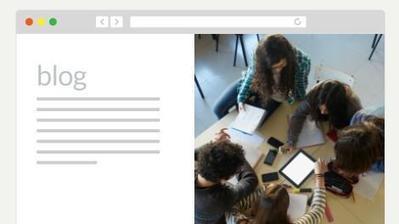An instructor adapted a meeting strategy from the tech world and found it surprisingly effective in the virtual college classroom.
Get Started for FREE
Sign up with Facebook Sign up with X
I don't have a Facebook or a X account
 Your new post is loading... Your new post is loading...
 Your new post is loading... Your new post is loading...
|

Becky Roehrs's curator insight,
August 4, 2017 10:32 AM
Wow-if you want ideas on how to set up effective group work, this site has videos, tool suggestions, and research

Barbara Vinal's curator insight,
February 23, 2015 10:13 AM
Faculty members must establish a rapport with each and every student from the beginning. The ongoing personal connection will not only encourage students to continue to learn, but will make them want to return to do the coursework because of the personal relationship. Students who feel as if they are alone in the online environment are far more likely to be disengaged, drop out of the course and/or leave work incomplete.
Computers are merely the tool. Human interaction is imperative no matter what the environment. 
Laurie Ferry's curator insight,
February 23, 2015 10:57 AM
The sense of community in an online course is critical to student retention.
StudentGeneratedInduction's curator insight,
March 22, 2015 8:02 AM
dropout rate greater online v on campus. Social strategies may help those online. |















